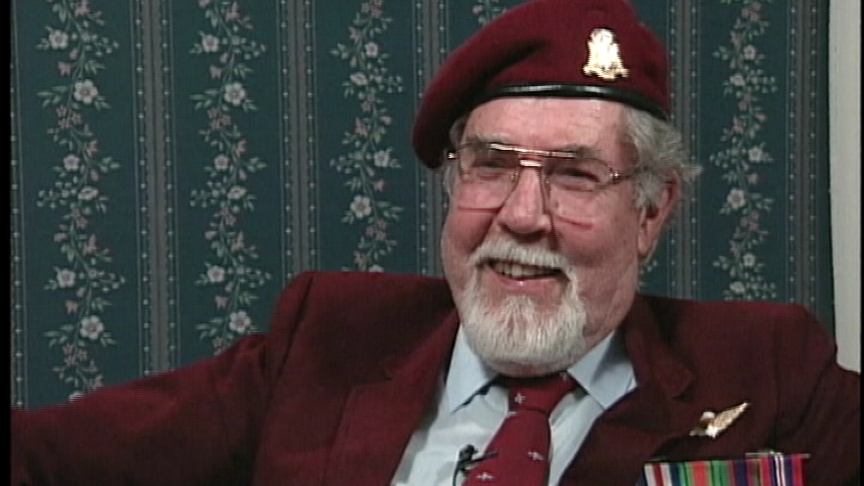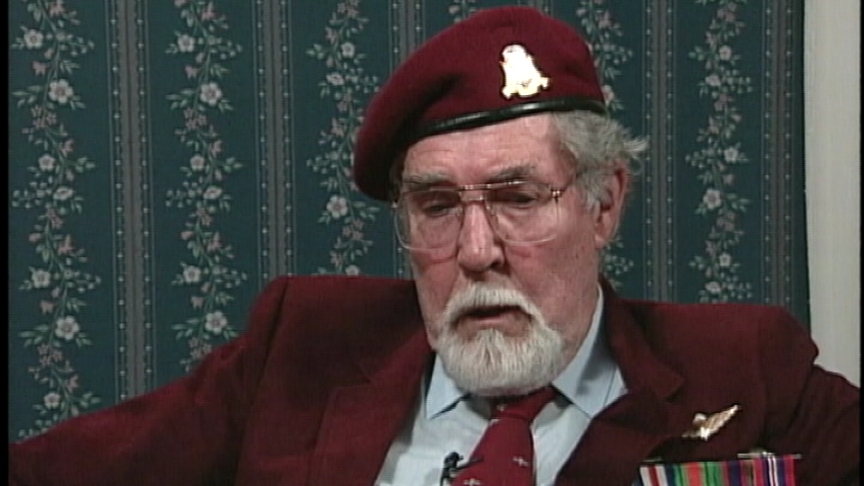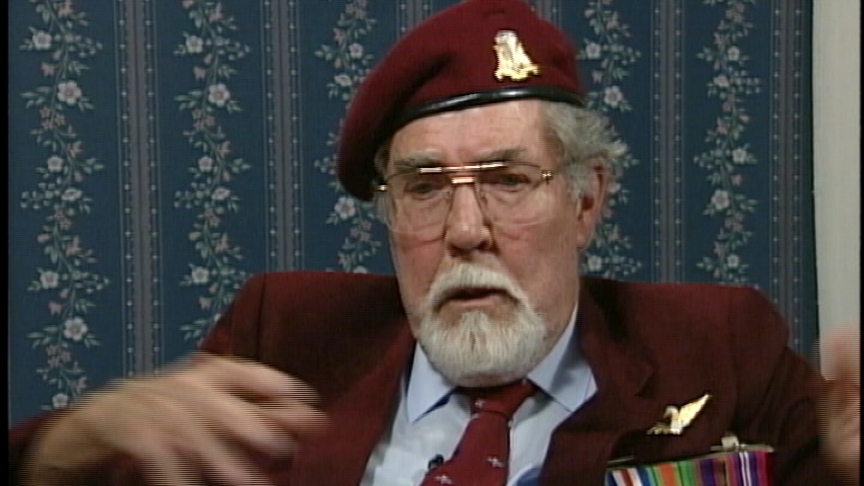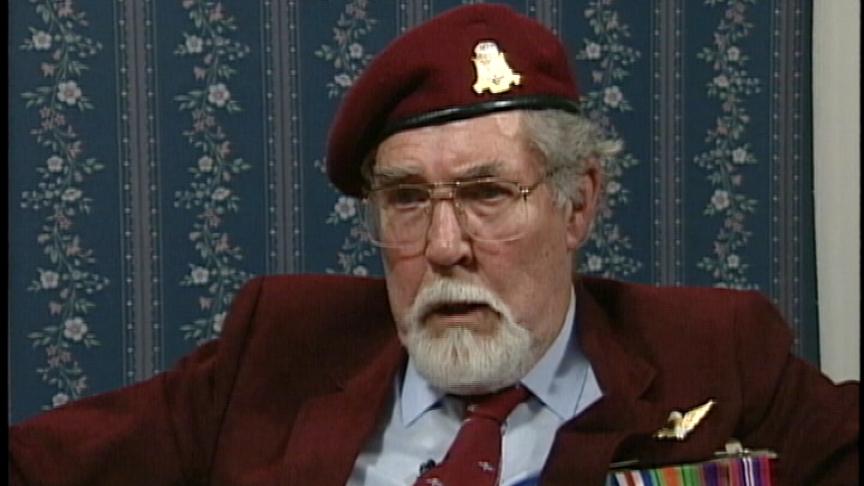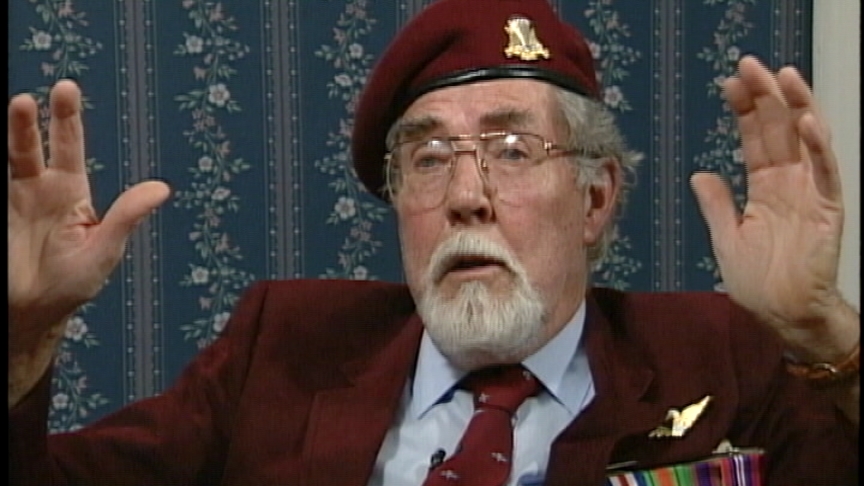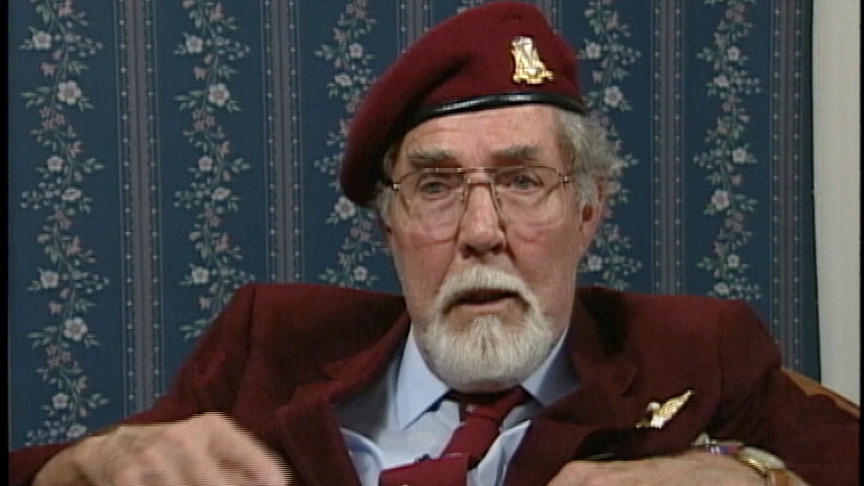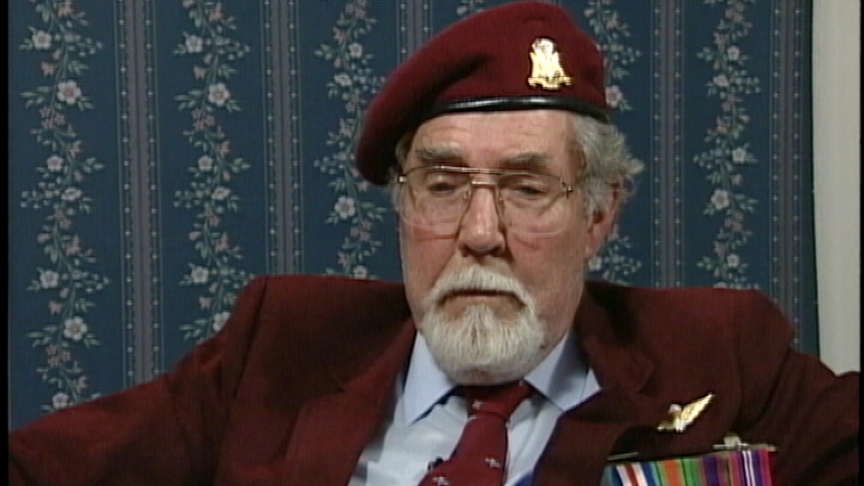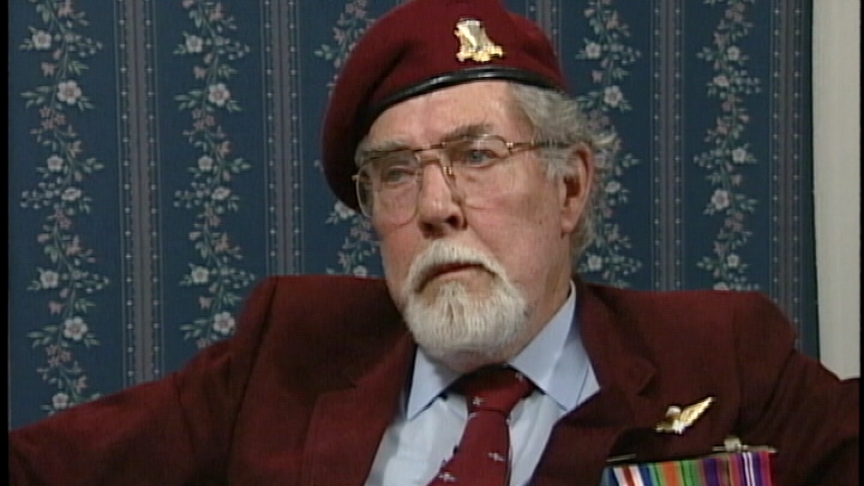I had the misfortune of losing my hearing in, outside of a little
town called Minden where I, we had support from the Amer-,
British tanks. And I happened to be standing between two of them
when they started firing and I, I lost the, the hearing from my
left ear almost completely and quite a large portion of it from
my right ear. And one of our other, other chap from the platoon
lost most of his hearing in that. Anyway, we worked our way
up through Germany and the Russians were coming down through
rather quickly and Montgomery wanted the British to, or the
Allies, to reach the Baltic Sea before the Russians. And, one
day, in a 24 hour period, we made a forced march, and we forced
march of pract... I think it was around 50 miles we covered,
and that's quite a, that's quite a feat, when you, you know,
and, but I... One of the, one of the humourous things here,
I had a friend in the platoon who's now dead, chap from Cape
Breton by the name of Johnny Solvat (sp) and he, his parents
were Polish and Czech, and he had learned some of the language.
And I learned how to say, "Hello. How are you?" and that sort of
thing from him in Polish and, so, as we went through Germany...
Of course, the Germans had, after they'd overthrown Poland,
they had taken quite a lot of the people from Poland and made
them into, we called them forced labourers, and so they were
quite... Johnny could speak to them in their own language and,
of course, it was very advantageous to us because they told us
many things, you know, of where we could find the food and this
sort of thing and the other things that go with food.
Ran into, as we were going up through, we got into a factory, and
a factory where they made these rabbit skin, rabbit skin jackets.
So, everybody, practically everyone in the battalion wore a
rabbit skin jacket. It was a rabbit skin body and the arms were,
were knitted, were knit. Anyway, we, we eventually reached
Wismar, which is just on the coast of the Baltic, and we reached
there, I guess, just about two hours before the Russians would've
would've reached there. And they came down through, and they,
they came down through another city. I forget the, forget
the name of it now, another town, but... Rostock, and so they
came down and joined us. And the Germans were coming through,
the Germans were coming through in, in droves. They wanted
to give up, give up, you know, surrender to us. And we had,
between us and the Baltic, there was an airfield, and we set up
a very large concentration camp there, and the, the German
troops who gave up, we marched them down there, and they
went into the concentration camp, and so on. So, we, we stayed
there for about, I guess, maybe a week, week and a half, or
something like that. And then we returned to England, and shortly
after that, the battalion came back to Canada.



